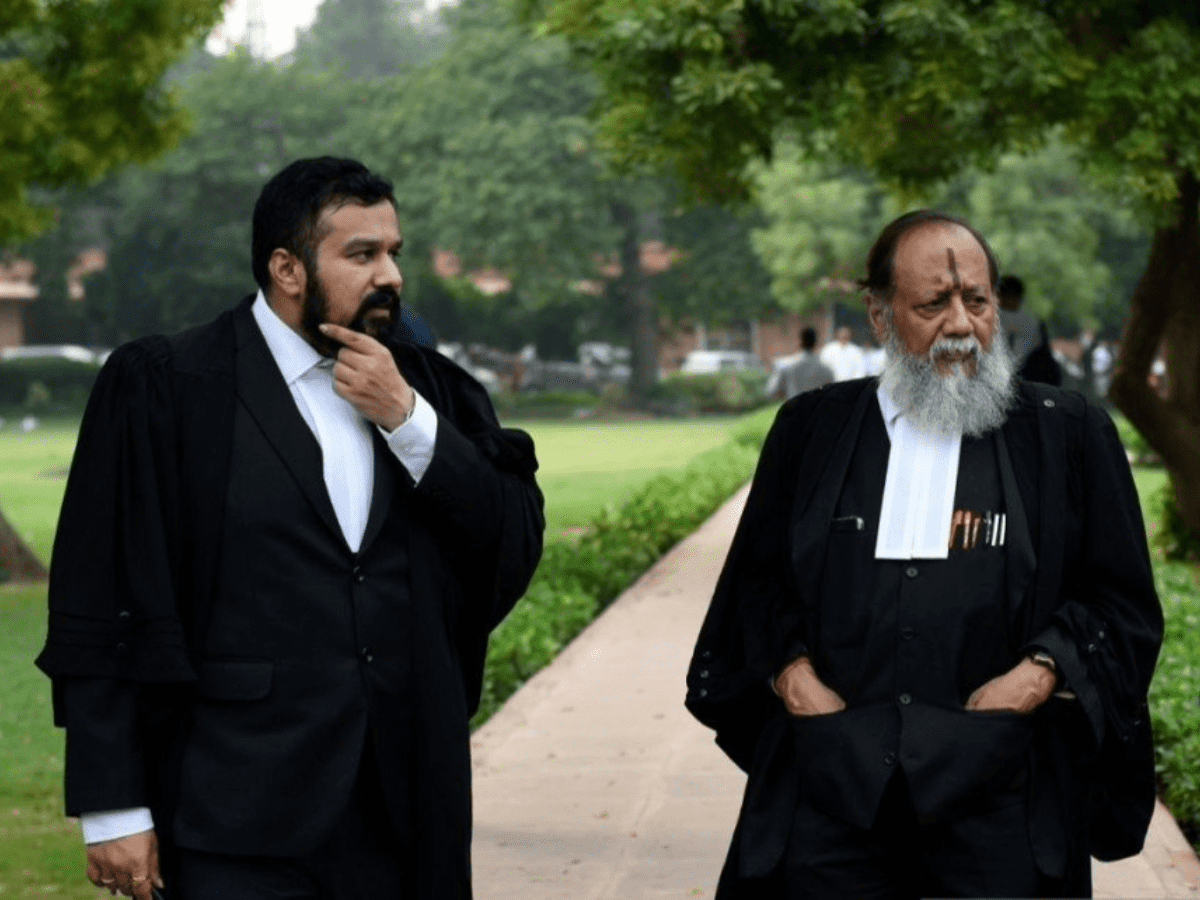
In a major development in the Gyanvapi case, Vishwa Vedic Sanatan Sangh (VVSS) president Jitendra Singh Vishen whose niece, Rakhi Singh, is one of the six plaintiffs, has decided to remove the father-son lawyer duo – Harishankar Jain and Vishnu Shankar Jain – from the case.
According to a report by the Indian Express, Vishen on Tuesday said that the lawyers will henceforth not be associated with any of the cases filed by the organisation. There are 50 cases that VVSS has filed across the country on various temple-mosque related issues. Of these, seven are related to the Gyanvapi case.
Vishen has also resigned from the Hind Samarajya Party formed by Harishankar Jain in 2021. Speaking to IANS on Wednesday, he said, “I have resigned from Hind Samarajya Party in which I held the posts of National Convenor and National General Secretary.”
When asked what effect the disassociation of lawyers will have on the Gyanvapi case, Vishen said. “Jain is simply an advocate in this case and an advocate can be changed any time.”
Dismissing this, senior Jain blamed Vishen’s growing vested interests being the result of such a step. “Differences started arising as his (Vishen) ambitions started gaining momentum. He entered this case at my invitation and his niece Rakhi Singh was made a petitioner on his request. The other four plaintiffs Laxmi Devi, Sita Sahu, Manju Vyas and Rekha Pathak are with me. All this will not affect this case in any way,” the National Herald quoted him.
Differences started erupting between Vishen and Harishankar when on May 6 the former said he would withdraw from the case. Then on May 9, Vishen took a complete U-turn and said he was referring to the other five cases related to the Gyanvapi case. He is a plaintiff in those cases.
The Gyanvapi-Kashi Vishwanath Case
On April 18, 2021, five women – four from Varanasi and one from Delhi – filed a petition in the Varanasi trial court seeking permission to conduct Hindu rituals at the western wall of the Gyanvapi mosque. They claimed there were images of the deity, Shringar Gauri, on the wall.
The court set up a committee and ordered a video graphic survey of the mosque.
On May 16, the committee claimed to have found a “shivling” type structure on the premises of the mosque. This “discovery” led to a widespread condemnation from both Hindus and Muslims where the former demanded the mosque be “handed back to” them and the latter dismissed it saying it was a “wazukhana”.
A wazukhana is a part of a mosque where Muslims wash, mainly the hands, legs and face before offering namaz.
On May 17, the Varanasi court ordered to seal the area where the “shivling” was reportedly found. The Supreme Court ordered that the wazukhana would remain closed but allowed Muslims to pray.
The case was garnering widespread media attention leading to tensed situation in Varanasi, one of the ancient cities of the world.
On May 20 the Supreme Court transferred the case from the local court to a district-level court allowing a much more experienced judge to handle it stating the sensitivity of the case.
On May 25, a fresh plea was filed in the Supreme Court seeking intervention in the Gyanvapi mosque dispute.
It contended that Muslims cannot assert any right in respect of any piece of land claiming to be mosques unless it has been constructed on legally owned and occupied virgin land.
The petitioner stated that property vested in the deity continues to be the deity’s property irrespective of the fact that any person has taken illegal possession and offered namaz.
The latest development is that the district court has adjourned for a further hearing on July 4.



